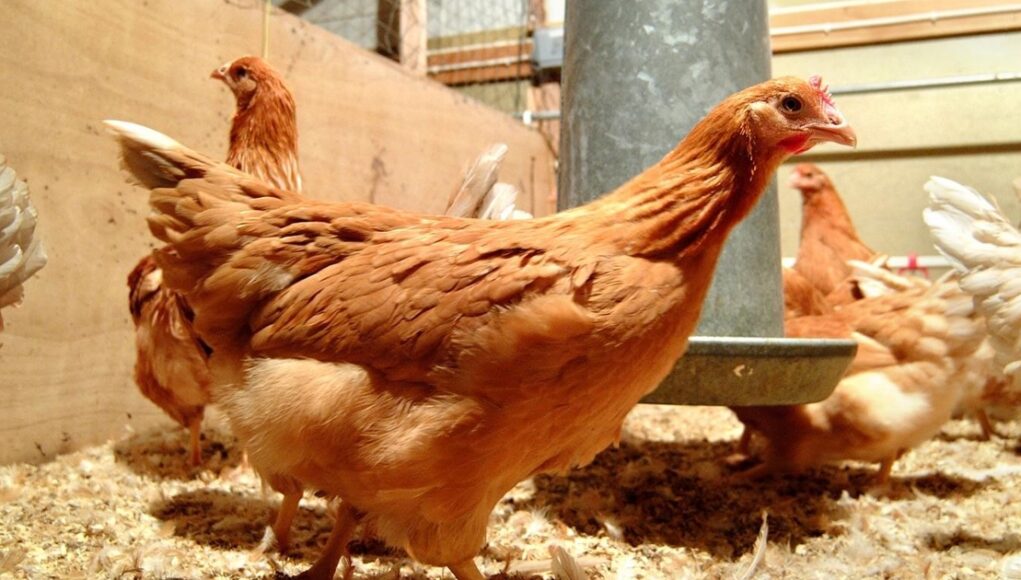For chicken enthusiasts, the health of their flock is always a top priority. One common ailment that can affect chickens is gapeworm. Knowing how to treat gapeworm naturally is essential for maintaining a healthy and thriving flock. Gapeworms are parasitic worms that infect the respiratory system of chickens, causing them to gasp for air. The good news is that there are natural methods to address this issue.

Understanding Gapeworm in Chickens
Gapeworms are a type of roundworm that primarily targets the trachea of chickens. These parasites can cause severe respiratory distress, leading to symptoms like coughing, head shaking, and open-mouthed breathing. If left untreated, gapeworms can be fatal, making it crucial to address this issue promptly.
Causes of Gapeworm Infestation
Gapeworms are commonly transmitted through intermediate hosts like earthworms, slugs, and snails. Chickens become infected when they consume these hosts. Understanding the transmission process is key to preventing future infestations.
Signs and Symptoms of Gapeworm
Recognizing the signs of gapeworm infection is the first step in treating it. Symptoms can include difficulty breathing, coughing, wheezing, and lethargy. Chickens may also exhibit a loss of appetite and weight loss.
Importance of Early Detection
Early detection of gapeworm is vital to prevent severe health complications in your chickens. Regular monitoring and observation of your flock can help catch the infection early, allowing for more effective treatment.
Natural Remedies for Treating Gapeworm
There are several natural remedies that can help treat gapeworm in chickens. These methods focus on enhancing the chickens immune system and creating an environment that is less conducive to parasites.
Using Herbs and Spices
Certain herbs and spices, such as garlic and thyme, have natural anti-parasitic properties. Incorporating these into your chicken’s diet can help reduce the burden of gapeworms. For more on safe herbs for chickens, visit safe herbs for chickens.
Apple Cider Vinegar
Apple cider vinegar is known for its health benefits, including its ability to boost the immune system. Adding a small amount to your chickens water can help keep gapeworms at bay.
Implementing Environmental Changes
Making changes to your chickens’ environment can also aid in preventing gapeworm infestations. This includes maintaining cleanliness and reducing exposure to intermediate hosts.
Regular Coop Cleaning
Keeping the chicken coop clean and dry is essential in preventing the spread of parasites. Regular cleaning removes potential hosts and reduces the risk of infection.
Natural Bedding Solutions
Using herbal bedding can also help protect your chickens from gapeworms. Learn how to make herbal bedding for chicks to naturally deter parasites.
Prevention and Long-term Management
Preventing gapeworm involves a combination of dietary adjustments and environmental management. Consistent application of these strategies can ensure your flock remains healthy.
Monitor Chicken Diet
Ensuring a balanced diet rich in nutrients can strengthen your chickens’ immune systems, making them less susceptible to infections.
Frequent Health Checks
Regular health checks are crucial for early detection of any health issues, including gapeworm. This proactive approach can save your chickens from severe health problems.
Conclusion
Understanding how to treat gapeworm naturally is essential for every chicken owner. By using natural remedies, improving environmental conditions, and maintaining regular health checks, you can effectively manage and prevent gapeworm infections in your flock.

FAQs
What is the best natural remedy for gapeworm?
Herbs like garlic and thyme are excellent natural remedies due to their anti-parasitic properties.
How can I prevent gapeworm in my chickens?
Preventive measures include maintaining a clean coop, using natural bedding, and ensuring a balanced diet for your chickens.
Can gapeworm affect other animals?
While gapeworm primarily affects birds, it can also infect other animals if they consume infected hosts. It’s important to manage and monitor your animals’ health closely.
For more information on chicken health and natural treatments, visit common chicken illnesses.
This article contains affiliate links. We may earn a commission at no extra cost to you.











